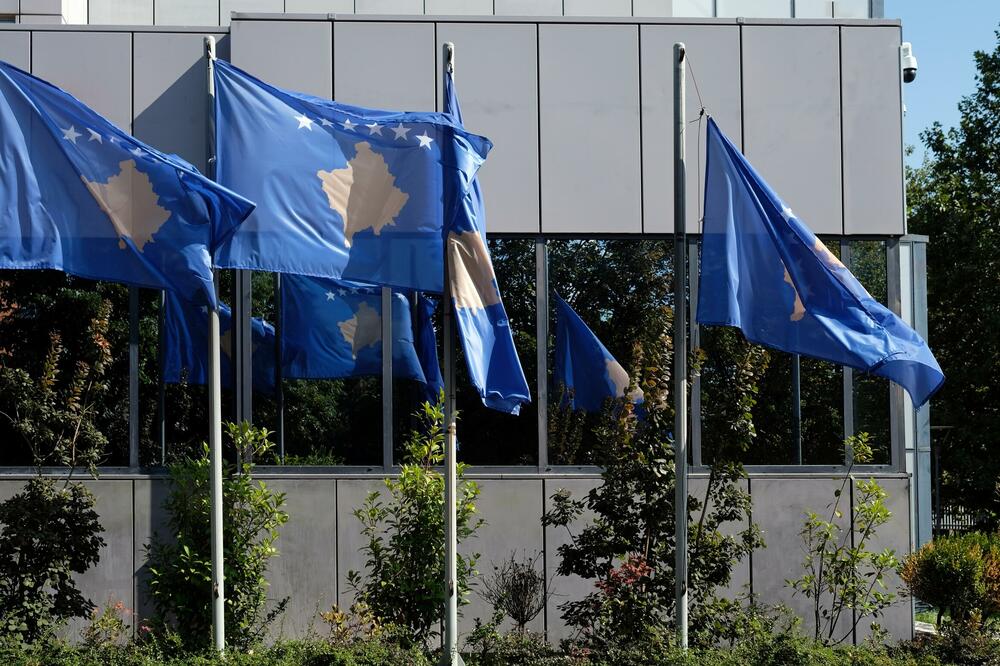The majority of European Union (EU) member states are in favor of lifting restrictive measures for Kosovo, several diplomatic sources in Brussels confirmed for Radio Free Europe (RSE).
The only difference between the member states, according to RSE's knowledge, is whether the measures should be lifted immediately or gradually.
On Tuesday, April 23, a meeting of the ambassadors of the EU member states was held, where the possibility of lifting the measures was discussed in light of the vote for the impeachment of mayors in four municipalities in the north of Kosovo, which was held on Sunday, April 21.
At the meeting, the report was submitted by the EU's special representative for dialogue, Miroslav Lajčak. Publish and Update Time
As it is learned from sources who are informed about the content of the discussion, the representatives of many member states who gave speeches during the discussion emphasized the desire to, as they stated, better balance the position of the EU towards Kosovo and Serbia and advocated the abolition of restrictive measures for Kosovo.
According to these sources, a group of countries, including Germany, Italy and France, supported the gradual abolition of measures against Kosovo, if the authorities in Pristina continue to show efforts to de-escalate the situation. Another group of countries, however, requested at the meeting the immediate lifting of the measures.
After the discussion, the ambassadors of the EU member states invited EU High Representative Josep Borelj to prepare a report to the EU Council on Kosovo's progress in implementing existing EU requirements.
Only after this report, the representatives of the EU countries will return to the question of the possible lifting of measures for Kosovo.
The EU introduced measures towards Kosovo in June 2023, after the violence at the end of May in the north of that country, when the elected mayors of Albanian nationality entered the municipal buildings and took office.
They were elected in the elections in April 2023, after the Serbs left the Kosovo institutions at the end of 2022, as a sign of dissatisfaction with the decision on license plates of the Government of Kosovo.
The 2023 elections were boycotted by the Serbian List and the local Serbian population.
The situation escalated on May 29 in Zvečan, after a conflict between demonstrators and members of the NATO Peacekeeping Mission in Kosovo (KFOR).
On April 22, the Government of Kosovo called on the EU to abolish, as they claim, unjust punitive measures against it, saying that they have fulfilled the obligation from the agreement with the Union to reduce tensions in the north of the country.
"Serbia is working to prevent Kosovo's membership in the Council of Europe"
According to diplomatic sources who were informed of the discussion, many member states have assessed that the events in Kosovo do not give much hope for the de-escalation of the situation.
Those present also mentioned the fact that the agreement reached by Serbia and Kosovo in 2023 in Brussels and Ohrid is not being applied.
It was assessed in this light that Kosovo proposed a "legitimate process for the impeachment" of previously appointed mayors and the holding of new elections in the north of Kosovo, but that the Serbian List decided to block the planned vote for the mayor.
Many EU ambassadors noted that Serbia is making efforts to prevent Kosovo's membership in the Council of Europe.
It is learned that the envoy for dialogue Miroslav Lajčak agreed with this statement, who, admittedly, during the exchange of opinions, avoided answering questions about whether the EU believes that Belgrade is violating the agreements of both Brussels and Ohrid by actively working to prevent Kosovo's membership. in the Council of Europe.
Bonus video:





